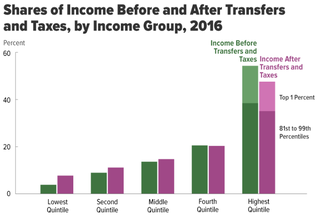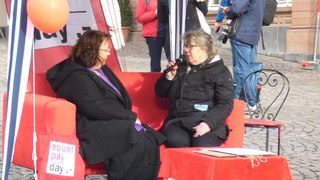Related Research Articles

The United Arab Emirates is a high-income developing market economy. The UAE's economy is the 4th largest in the Middle East, with a gross domestic product (GDP) of US$415 billion in 2021-2023.

The United States is a highly developed mixed economy. It is the world's largest economy by nominal GDP; it is also the second largest by purchasing power parity (PPP), behind China. It has the world's sixth highest per capita GDP (nominal) and the eighth highest per capita GDP (PPP) as of 2024. The U.S. accounted for 26% of the global economy in 2023 in nominal terms, and about 15.5% in PPP terms. The U.S. dollar is the currency of record most used in international transactions and is the world's reserve currency, backed by a large U.S. treasuries market, its role as the reference standard for the petrodollar system, and its linked eurodollar. Several countries use it as their official currency and in others it is the de facto currency. Since the end of World War II, the economy has achieved relatively steady growth, low unemployment and inflation, and rapid advances in technology.

The European Investment Bank (EIB) is the European Union's investment bank and is owned by the 27 member states. It is the largest multilateral financial institution in the world. The EIB finances and invests both through equity and debt solutions companies and projects that achieve the policy aims of the European Union through loans, equity and guarantees.

The Institute for Public Policy Research (IPPR) is a progressive think tank based in London. It was founded in 1988 by Lord Hollick and Lord Eatwell, and is an independent registered charity. The think tank aims to maintain the momentum of progressive thought in the United Kingdom through well-researched and clearly argued policy analysis, reports, and publications; as well as a high media profile.

The Centre for Policy Studies (CPS) is a centre-right think tank and advocacy group in the United Kingdom. Its goal is to promote coherent and practical policies based on its founding principles of: free markets, "small state," low tax, national independence, self determination and responsibility. While being independent, the centre has historical links to the Conservative Party.

The Institute for Fiscal Studies (IFS) is an independent economic research institute based in London, United Kingdom, which specialises in UK taxation and public policy. It produces both academic and policy-related findings.
The Nuffield Foundation is a charitable trust established in 1943 by William Morris, Lord Nuffield, the founder of Morris Motors Ltd. It aims to improve social well-being by funding research and innovation projects in education and social policy, and building research capacity in science and social science. Its current chief executive is Tim Gardam.

The Centre for Social Justice (CSJ) is an independent centre-right think tank based in the United Kingdom, co-founded in 2004 by Iain Duncan Smith, Tim Montgomerie, and Philippa Stroud.
The Centre for Cities is an independent, non-partisan urban policy research unit and a charity registered in England. The Centre's main goal is to understand how and why economic growth and change takes place in the United Kingdom's cities.

Compass is a British centre-left pressure group, aligned with the Labour Party which describes itself as: "'An umbrella grouping of the progressive left whose sum is greater than its parts". Like the formally Labour-affiliated think tank the Fabian Society it is a membership-based organisation and thus seeks to be a pressure group and a force for political organisation and mobilisation.

The TaxPayers' Alliance (TPA) is a pressure group in the United Kingdom which was formed in 2004 to campaign for a low-tax society. The group had about 18,000 registered supporters as of 2008 and claimed to have 55,000 by September 2010. However, it has been suggested that a vast majority of these supporters – who do not contribute financially or engage in campaigning – were simply signed up to a mailing list.
The Tax Justice Network (TJN) is a British advocacy group consisting of a coalition of researchers and activists with a shared concern about tax avoidance, tax competition, and tax havens.
A hybrid open-access journal is a subscription journal in which some of the articles are open access. This status typically requires the payment of a publication fee to the publisher in order to publish an article open access, in addition to the continued payment of subscriptions to access all other content. Strictly speaking, the term "hybrid open-access journal" is incorrect, possibly misleading, as using the same logic such journals could also be called "hybrid subscription journals". Simply using the term "hybrid access journal" is accurate.

Income inequality has fluctuated considerably in the United States since measurements began around 1915, moving in an arc between peaks in the 1920s and 2000s, with a 30-year period of relatively lower inequality between 1950 and 1980.

The inequality of wealth has substantially increased in the United States in recent decades. Wealth commonly includes the values of any homes, automobiles, personal valuables, businesses, savings, and investments, as well as any associated debts.
The Legatum Institute is a think tank based in London, UK. Its stated aim is to advance the education of the public in national and international political, social and economic policy. The Institute has over forty donors including the Legatum Foundation. It has been called "arguably the most influential think tank in Britain pushing its free market pro-Brexit vision and enjoying privileged access to media and ministers" but it has attracted controversy as a result of its opaque, offshore funding.
Environmental, social, and governance (ESG) is shorthand for an investing principle that prioritizes environmental issues, social issues, and corporate governance. Investing with ESG considerations is sometimes referred to as responsible investing or, in more proactive cases, impact investing.
The Resolution Foundation is an independent British think tank established in 2005. Its stated aim is to improve the standard of living of low-to-middle income families.

The gender pay gap or gender wage gap is the average difference between the remuneration for men and women who are employed. Women are generally found to be paid less than men. There are two distinct numbers regarding the pay gap: non-adjusted versus adjusted pay gap. The latter typically takes into account differences in hours worked, occupations chosen, education and job experience. In other words, the adjusted values represent how much women and men make for the same work, while the non-adjusted values represent how much the average man and woman make in total. In the United States, for example, the non-adjusted average woman's annual salary is 79–83% of the average man's salary, compared to 95–99% for the adjusted average salary.
Sweden enjoys a relatively low income inequality and a high standard of living. Unemployment as of 2017 was estimated to be 6.6% by the CIA World Fact Book, lower than in other European Union countries. The Nordic model of a social welfare society exemplified by Sweden and its near neighbours has often been considered a European success story compared internationally with the socioeconomic structures of other developed industrial nations. This model of state provided social welfare includes many unemployment benefits for the poor, and amply funded health, housing and social security provision. within essentially corruption free nations subscribing to principles of a measure of openness of information about government activity. The Income inequality in Sweden ranks low in the Gini coefficient, being 25.2 as of 2015 which is one of the lowest in the world, and ranking similarly to the other Nordic countries; although inequality has recently been on the rise and several central European countries now have a lower Gini coefficient than Sweden.
References
- ↑ "About - High Pay Centre". Highpaycentre.org. Retrieved 4 August 2017.
- ↑ "Reform Agenda: How to make top pay fairer - Publications - High Pay Centre". Highpaycentre.org. 14 July 2014. Retrieved 4 August 2017.
- ↑ "Press - High Pay Centre". Highpaycentre.org. Archived from the original on 5 August 2017. Retrieved 4 August 2017.
- ↑ "'Fat Cat Thursday': Top bosses earn workers' annual salary by lunchtime". TheGuardian.com . 4 January 2018.
- ↑ "High Pay Commission | Compass". Archived from the original on 12 June 2018. Retrieved 10 June 2018.
- ↑ "High Pay Centre - FAQs". High Pay Centre. Retrieved 10 June 2018.
- ↑ "Who Funds You? High Pay Centre".